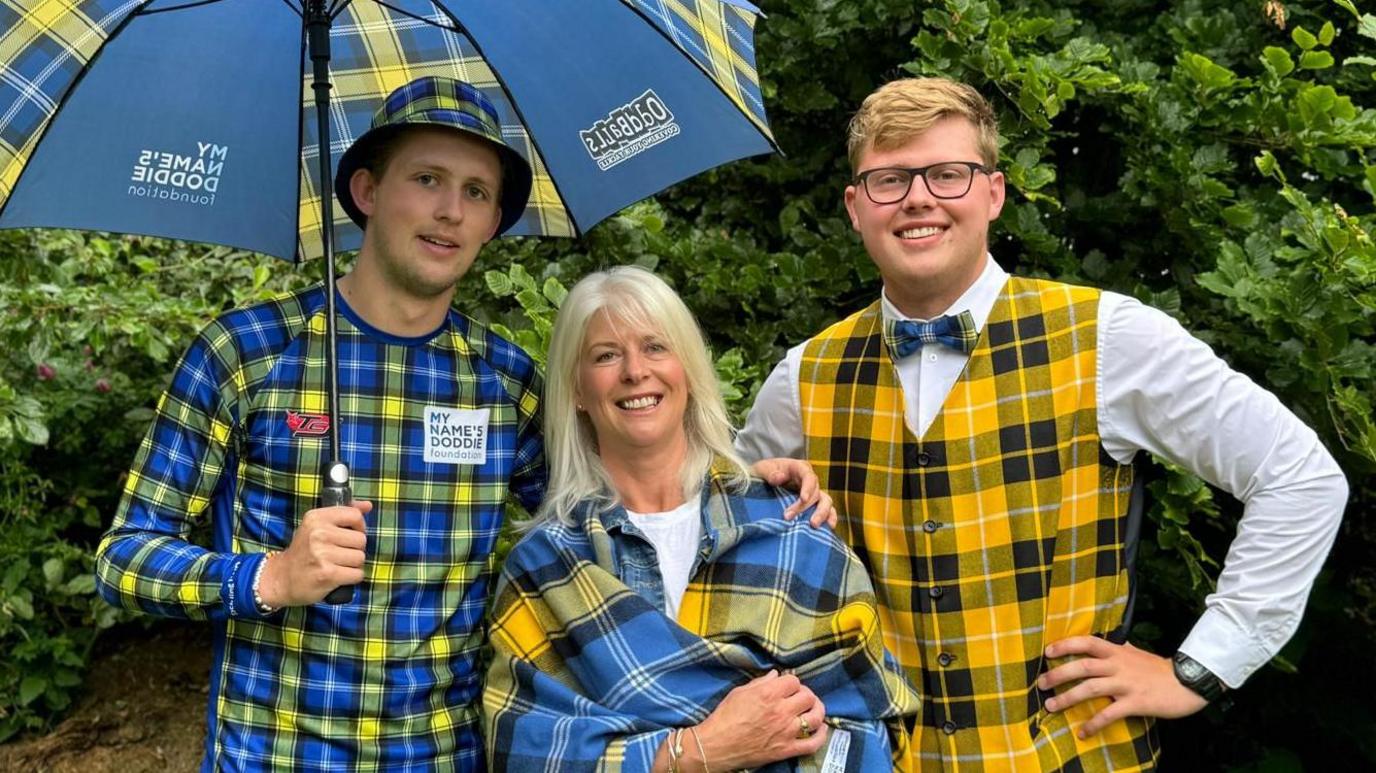Nurse at MND lecture was unaware she had disease
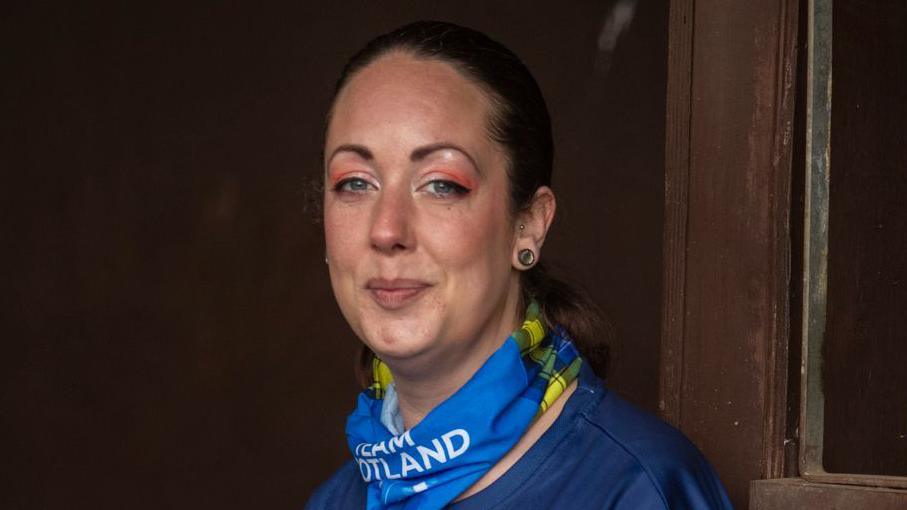
Sheree is one of the youngest people in Scotland to be diagnosed with MND
- Published
A nurse from Inverness has told how she attended a lecture on motor neurone disease (MND) unaware that she already had the condition.
Sheree Gregg was the youngest person in the Highlands - and one of the youngest in Scotland - to ever be diagnosed with the illness at just 28 years old.
The keen musician started noticing symptoms, such as weakness and tingling in her left arm, while playing guitar in a punk band. She was diagnosed with a "very slow, progressive" form of MND.
Now 34, Sheree has found joy in horse-riding, which helps her cope with the mental and physical impacts of her condition.
"Around 2016 I started having symptoms and had begun some tests," she told BBC Radio's Good Morning Scotland programme.
While playing guitar, she noticed that her left hand was struggling to keep up with the music.
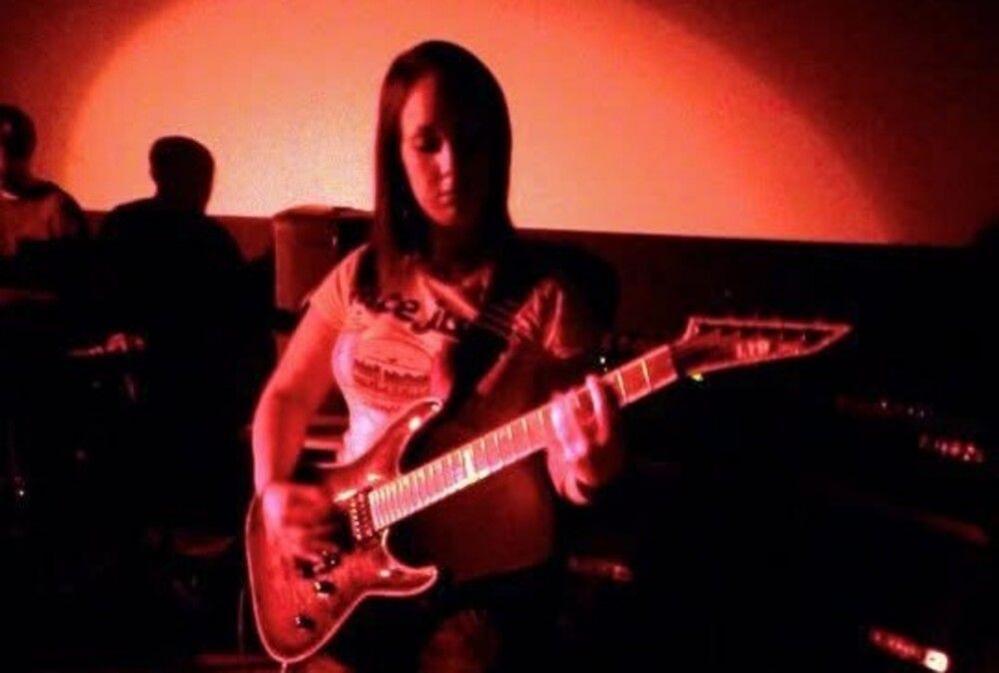
She played guitar regularly in a heavy punk band before her diagnosis
"Music was a huge part of who I was," she said.
"I'd played live since the age of 15, and I loved performing, the energy of being on stage, and the connection with the audience. Giving it up was heart-breaking, but I had no choice."
Sheree said she was still experiencing symptoms while she sat in a university lecture about MND but "refused to believe it".
"I remember sitting in the front row during that lecture," she said. "My left arm was already weak, and my muscles were twitching.
"It felt surreal, like the lecturer was describing exactly what was happening to me, but I couldn't bring myself to say anything.
"I spent hours in the library, looking up symptoms in medical journals, and MND kept appearing. But I ignored it. I didn't want it to be true."
'Complete denial'
MND is a progressive and life-shortening disease which affects motor neurons in the brain and spinal cord, gradually impairing movement, speech, and other vital functions.
Six people are diagnosed with the disease in the UK every day and most patients are given a life expectancy of two to three years from diagnosis.
There is currently no cure for MND.
Sheree's diagnosis, which came after 18 months of tests to rule out other potential illnesses, eventually ended her nursing career and other aspirations including buying a home, playing guitar in a band, and travelling the world.
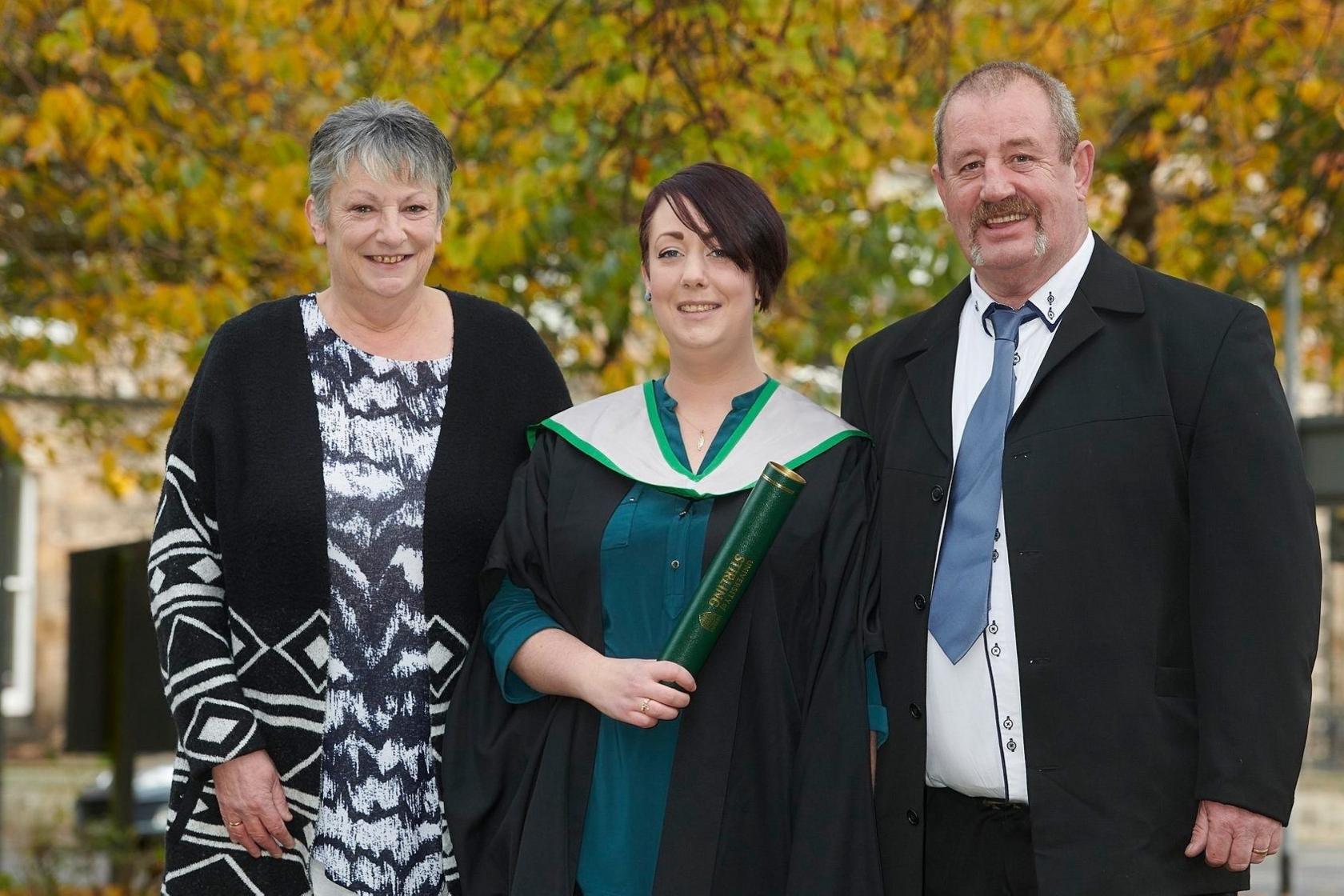
Sheree celebrated her nursing graduation with parents Linda and Jim
"I was in complete denial for a long, long time," she said. "To be diagnosed at that age - even the professionals were quite unsure.
"At 28, being the youngest person diagnosed in the Highlands, I certainly don't want anyone else to ever be given that label.
"But more and more people are being diagnosed and I've noticed there are a lot of younger people."
Despite the shocking news, Sheree managed to graduate with an honours degree in nursing with distinction.
She added: "Knowing the science behind MND gave me a clear picture of what was happening to my body.
"But that didn't make it easier. Learning about a disease in theory is very different from living with it."
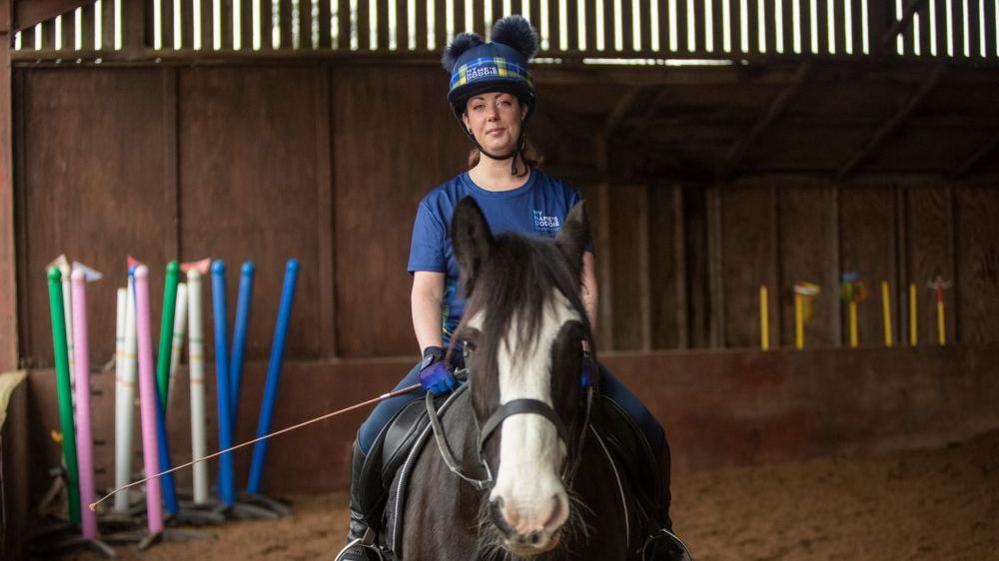
Sheree has fallen in love with horse-riding as it helps her build strength
However she has found new sources of joy including horse-riding, which she called "a real turning point".
"It's my happy place every week," she said.
"It's helped me regain some muscle strength, improve my posture, and feel a sense of freedom I thought I'd lost."
And earlier this year, she completed a 10km race at the Loch Ness Marathon in memory of friends she had lost and those still fighting MND.
She has been able to go on holiday and adapt her controllers to keep gaming thanks to a "Time-Out" grant from the My Name'5 Doddie Foundation.
The charity was set up by former Scotland and British and Irish Lions rugby legend Doddie Weir, who died from MND in 2022.
The charity is launching its annual Doddie Aid fundraiser, a mass-participation event, external which raises funds to support people living with MND and further research into the disease.
Tens of thousands of people sign up for a jog, walk or cycle to raise money for the five-week campaign each year.
Since its launch in 2021, the event has raised over £5m.
"The foundation has given me a lot of hope and working with them recently has been amazing," said Sheree.
"What Doddie's done with his platform and his campaign, it's helped me and others.
"There isn't much that can be done following an MND diagnosis right now, but that will change. There is hope, and it's up to all of us to make that hope a reality."
Related topics
- Published29 December 2024
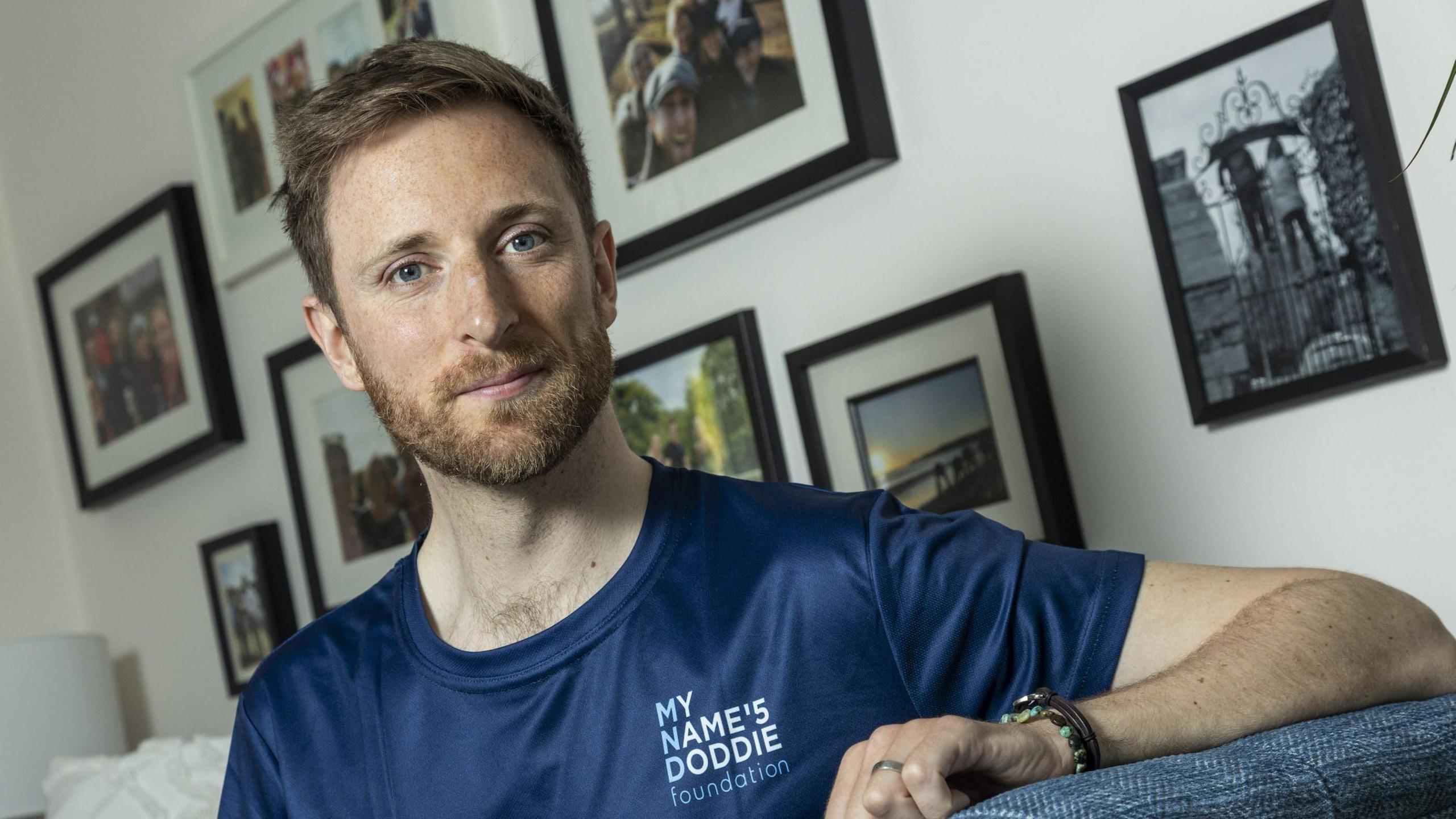
- Published4 July 2024
